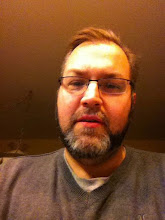It's snowing in Syracuse today. This is not news. Actually, it's pretty standard for January. I always get a little melancholic when it snows because I can't ski anymore. But I've talked about this before when I wrote "Earning Turns" a few years back. "Earn you turns" is a skiing term that means a skier has skied the "back country" by hiking up a mountain then skiing down it. I didn't know this when I wrote my first post so many years ago but I don't regret it. My kids were earning their turns in their own way and while skiing didn't grab them the way it grabbed me, I was glad that I exposed them to it. The expression "earn your turns" got me thinking though. When you think about it a little, it's a great metaphor for writing.
 |
When you start writing, you're in the wilderness, hiking up the mountain in hopes of finding the perfect run that no one has ever taken before. Or at the very least one that only a few people have so you can make your own mark. There's an anticipation and nervousness that comes with the unknown as a new project looms and you stumble your way through the bleakness, seeking and searching. Then you find it. That perfect run. The one that had been eluding you. A blank sheet of snow stretching out, ready for you to carve up how you see fit. It's familiar but intimidating. The first step is the hardest but once you take it, everything comes back to you in a rush. The silence of a winter's morn is replaced by the creak of a boot and the whisper of the skis on the snow. The tautness gives way to muscle memory as you guide the seventy plus inches of fiberglass through the snow. Stone and tree blur by and you feel a sense of accomplishment as you complete the run. You can't help but look back at what you've done and feel some pride that you did it. The entire process is never quite easy and if you're doing it right it should be a little difficult. It's like the quote from A League of Their Own, "It's supposed to be hard, if it wasn't hard everyone would do it. The hard is what makes it great."
I think it's a damn fine metaphor, if you ask me. So, let's go earn some turns and get some writing done.










